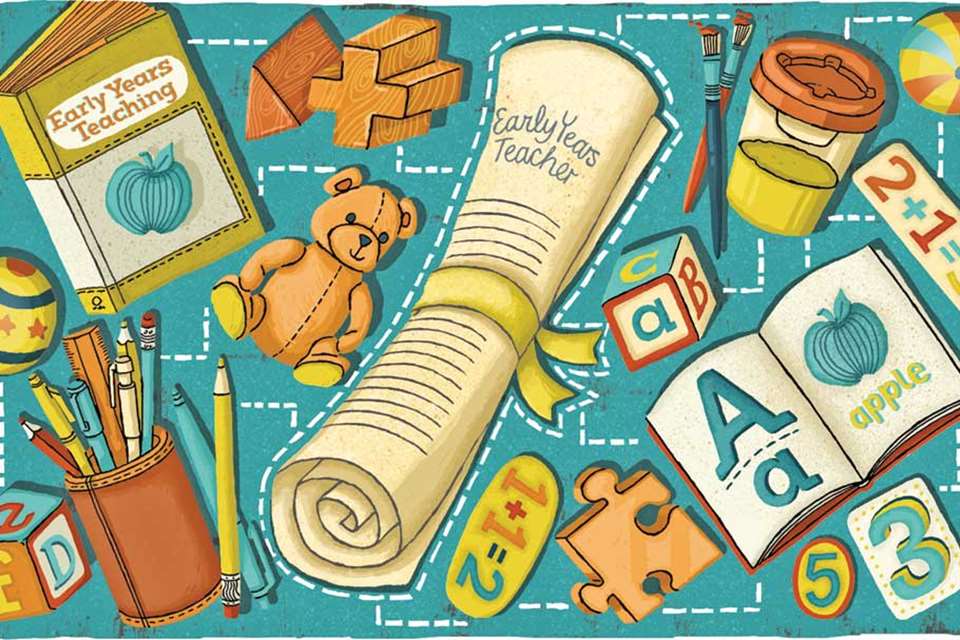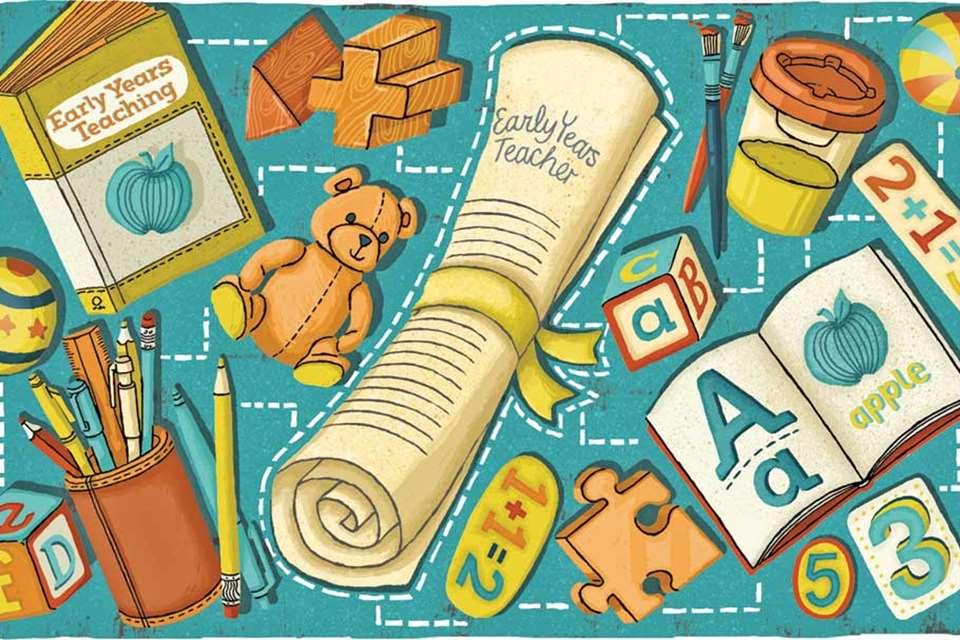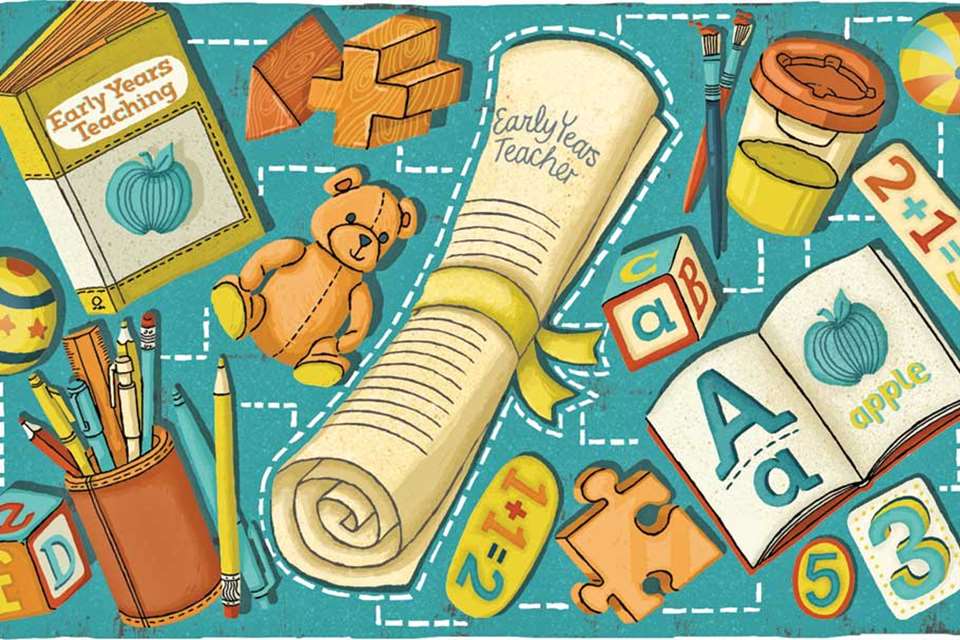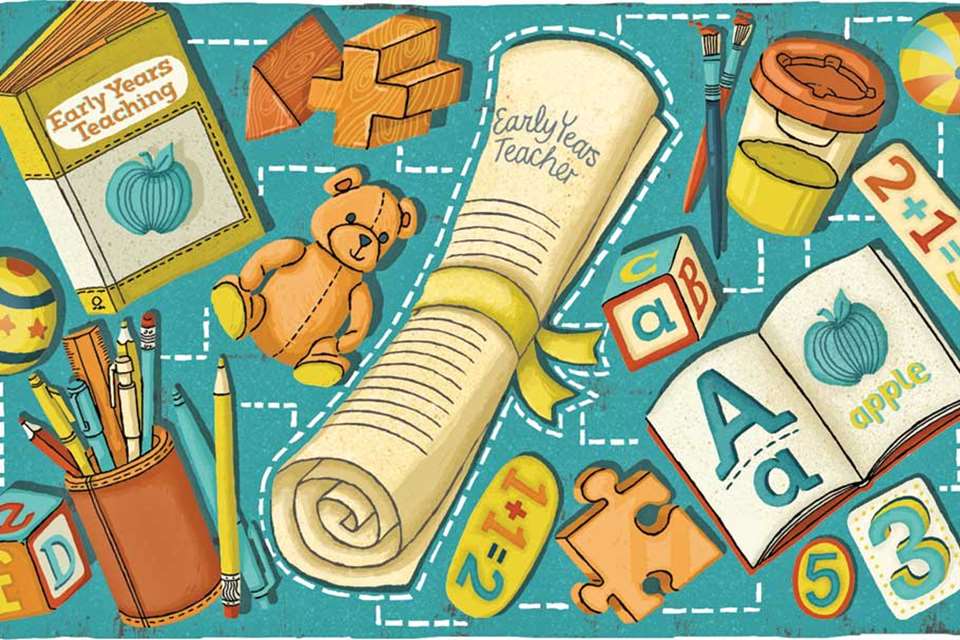Early Years Teacher: Standard 8 - Time to use your breadth of skills
Karen Hart
Monday, May 5, 2014
Standard 8 pulls together everything that has been explored as part of the EYTS programme, as Karen Hart explains in the concluding part of this series.

STANDARD 8
8. Fulfil wider professional responsibilities
Standard 8 asks students to consider and demonstrate ways in which their knowledge and experience can help create an early years environment incorporating all the standards to enrich and stimulate a child's development.
Denise Reardon, programme director of Early Years Teacher Status at Canterbury Christ Church University, provides her input across this feature.
SUPPORTING STATEMENTS
8.1 Promote equality of opportunity and anti-discriminatory practice
When looking at this area, remember the importance of the practitioner as a model for behaviour. Children take behavioural cues from the adults they interact with; their aspirations growing in proportion to their sense of self-worth and perceivable achievements.
In order to promote equality of opportunity and anti-discriminatory practice, it is important to lead, model and practise in a way that treats all children fairly, irrespective of their race, ethnicity, culture, religion, gender, sexual orientation, family background, learning difficulties and/or disabilities.
The knowledge and skills gained from your graduate studies will help you to review policies and practices, and contribute to, or introduce, new resources that promote equality. It is especially important to personify special educational needs or disabilities, showcase the myriad opportunities to celebrate different faiths, and embrace dual nationalities and the diverse languages represented in society today.
8.2 Make a positive contribution to the wider life and ethos of the setting
In meeting this requirement, practitioners will need to consider their colleagues, family members and their own feelings towards the ethos of their setting.
Trainee early years teachers may wish to ask themselves and their colleagues:
- What do the values and principles that underpin the ethos of the setting look like?
- Are they understood and shared with children, parents/carers, colleagues, other professionals and the wider community?
- Do we ensure all children are fully included and no child is excluded or disadvantaged due to race, ethnicity, culture, religion, gender, language, family situation, social background, special needs or disability?
- Does everyone understand the role they play in developing an ethos that enables every child to reach their full potential?
- How is the culture and ethos of the setting shared with others, for example, during meetings with colleagues or professionals from outside agencies?
- What opportunities are there to join in multi-professional discussions about ways of improving provision and practice?
- Whether or not there is a diverse population in the setting, how are positive attitudes to diversity and differences promoted in order for children to learn about and value different aspects of people's lives?
- What opportunities are there to encourage children to acquire an appreciation of, and respect for, their own and other cultures, traditions and ways of living?'
8.3 Take a lead in establishing a culture of co-operative working between colleagues, parents/carers and other professionals
Parents, carers and the wider community have a key role to play in the creation of a successful, vibrant and enriching setting. By capitalising on the skills and expertise of the wider community, you can provide a creative and socially diverse curriculum for every child.
As part of this, consider the following areas:
- Offer opportunities for parents/carers to discover how their child learns and develops; the importance of learning through play in the early years; appropriate approaches to language and literacy or early mathematics; and school readiness.
- Encourage parents to spend time observing their children engaging in play and learning activities at home, indoors and outdoors.
- Share children's experiences of home and family with other practitioners.
- Ensure that children's records are shared between parent/carer and the practitioner.
- Offer informal training sessions, information leaflets or drop-in sessions and parent information boards.
8.4 Model and implement effective education and care, and support and lead other practitioners, including early years educators
Practitioners are asked to bring all their early years knowledge and experience together, to inspire and motivate all those involved in the life of their setting by establishing high personal standards to lead by example, respecting their position as an influential educator, and recognising the importance of the responsibility this entails.
Think of your early years skills as falling into the following four areas, writing a list of your professional skills under the appropriate headings to help you define the areas where they can be used most effectively in supporting colleagues:
- Communication skills
- Decision-making and problem-solving skills
- Interpersonal skills
- Organisational skills
Early years teachers need to employ a range of leadership styles, attune themselves to their colleagues' feelings and find ways to support them. I believe that there is no single best way to lead and that, to be effective, your style needs to be tailored to what John Adair refers to as 'the particular task or situation in hand'. A significant feature of your role is to develop others, within the context of the complex nature of the EYFS, the environment and, more importantly, the children and families you are accountable to.
8.5 Take responsibility for leading practice through appropriate professional development for self and colleagues
When looking at this area, it's important to remember that one of the most productive forms of personal professional development comes from assessing your own work and professional partnerships. Consider the following:
- Setting realistic targets to others through appraisals in order to improve their understanding and performance
- Participating in a nationally recognised programme or a locally arranged training event
- Attendance at an early years conference or event
- Undertaking a piece of small-scale action research as part of your graduate studies
- Observing and peer mentoring colleagues' practice
- Arranging shadowing or mentoring opportunities
- Sharing research and other examples of outstanding practice as a way of informing and improving your own and your colleagues' practice.
8.6 Reflect on and evaluate the effectiveness of provision, and shape and support good practice
By aiming to become fully involved in the forming of policies and practices affecting your setting, you will be able to effectively shape and support good practice.
Bear in mind that not only do you need to be up to date with the EYFS, current policies and practices yourself, but you need to support others to understand ways to implement them. Being up to date with the EYFS, policies and procedures is of paramount importance in an early years setting.
Aim to review and be involved in updating policies and procedures; this way, you are able to shape and promote the principles and values that inform and steer the ethos. In doing this, ask yourself:
- How effective are the policies and practices that are in place?
- Are they known and understood by everyone?
- Are they used in daily practice
- Can I use my reading and research to influence policies and practices?
- Can I involve colleagues in a continuous collective process of policy review, writing and implementation, and how?
- How do I involve parents and children in policy making?
8.7 Understand the importance of, and contribute to, multi-agency team working
You need to see the bigger picture. Multi- agency team working will inevitably involve not just children, but whole families, for example, when working in partnership with ESL and social services professionals.
SEEING THE BIG PICTURE
To summarise, the examples given above are by no means exhaustive - your graduate-level studies and experience will have afforded you many more innovative solutions.
Your role as a trainee early years teacher is to find a way to take part in creating and sustaining a culture of co-operative working between colleagues, parents/carers and other professionals. You may need to seek the support of other colleagues and multi-agency teams to help you promote the culture and ethos of the setting and, at the same time, uphold equality of opportunity and anti-discriminatory practice in all that you do.
As a trainee, you will need to find ways to make a positive contribution to the wider life and ethos of the setting, role-model, lead and support other professionals to reflect on and evaluate the effectiveness of their provision, and shape and support outstanding practice for all children.
Remember to seek appropriate professional development for yourself and your colleagues. Lifelong learning and continuous professional development are important in helping to improve the quality of teaching and learning right the way across the EYFS.
- Teachers Standards (Early Years), https://www.gov.uk/government/uploads/system/uploads/attachment_data/ file/211646/Early_Years_Teachers__Standards.pdf











